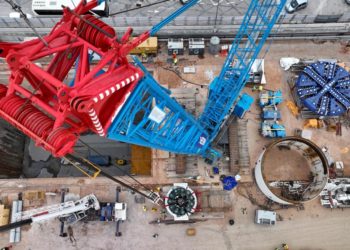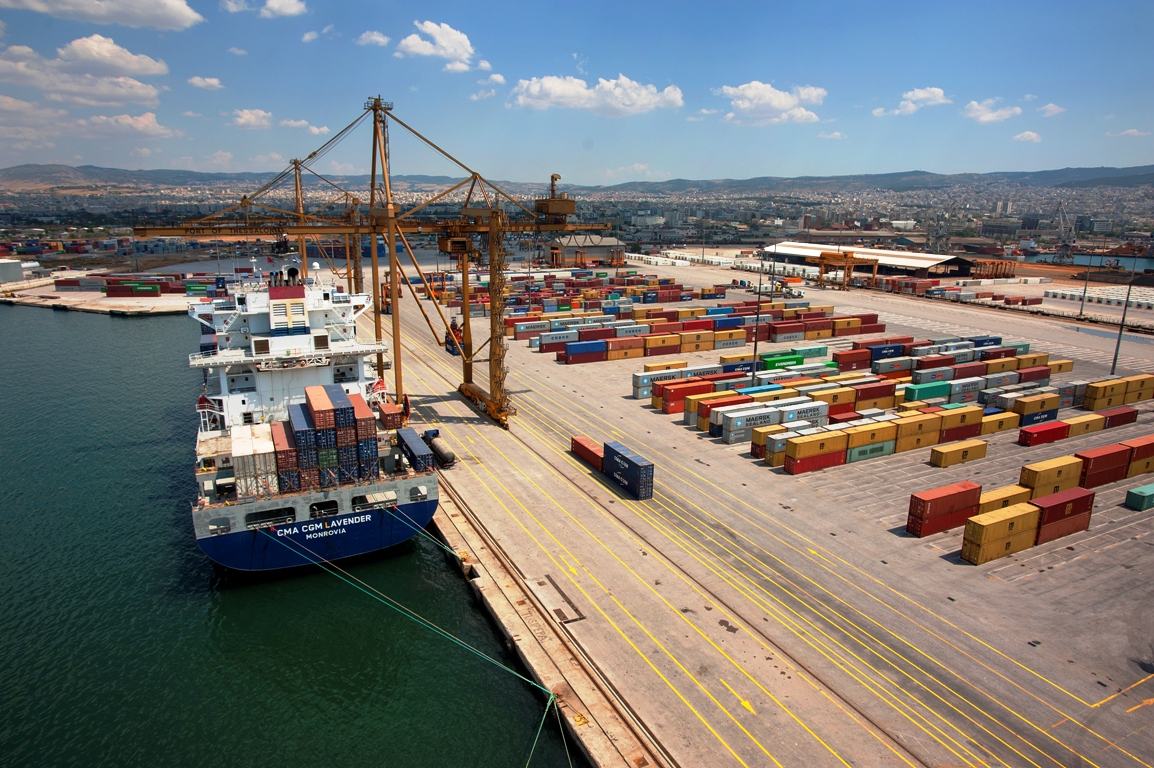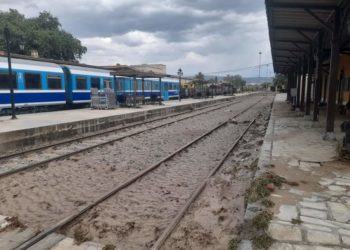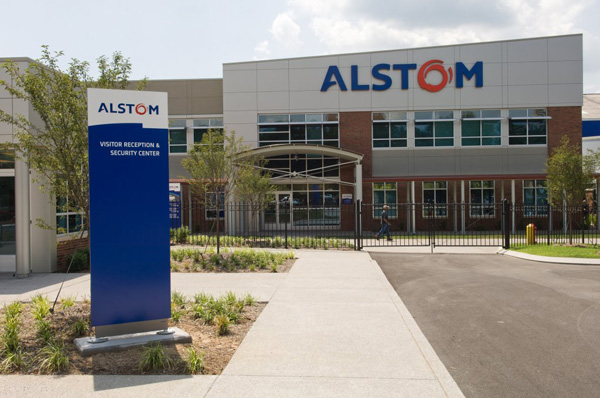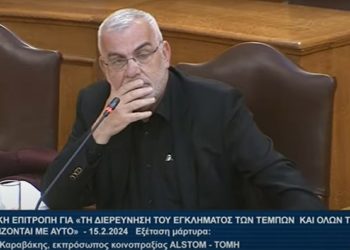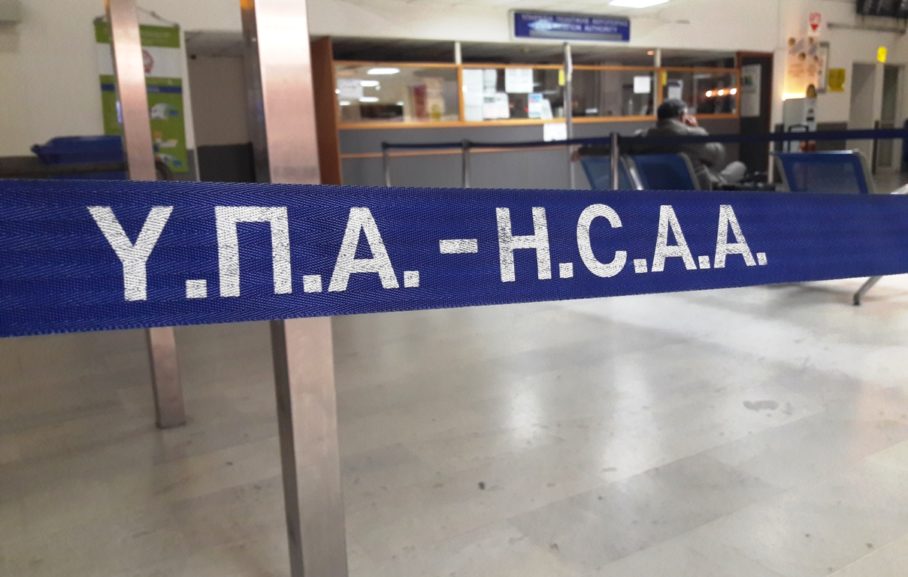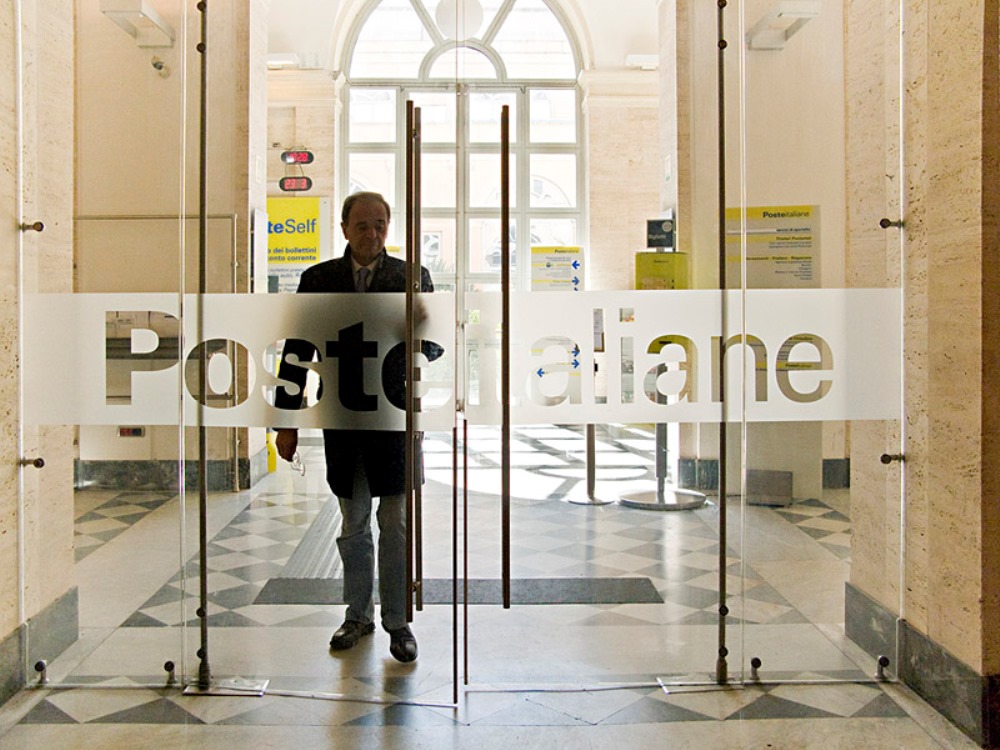Between 1 April 2018 and 30 September 2018, Alstom booked €7.1 billion of orders leading to a new record-breaking backlog of €38.1 billion.
Sales reached €4 billion. The book-to-bill was strong at 1.8.
The adjusted EBIT increased to €285 million leading to an adjusted EBIT margin of 7.1%.
Net income (Group share) was exceptionally high at €563 million. During the first half of fiscal year 2018/19, free cash flow amounted to €172 million.
(in € million) | Half-year ended 30 September 2017* | Half-year ended 30 September 2018 | % change reported | % change organic | ||
Actual figures | ||||||
Orders backlog | 34,966 | 38,113 | 9% | 11% | ||
Orders received | 3,170 | 7,129 | 125% | 130% | ||
Sales | 3,341 | 4,010 | 20% | 23% | ||
Adjusted EBIT | 180 | 285 | 58% | |||
Adjusted EBIT margin | 5.4% | 7.1% | ||||
Net income – Group share | 177 | 563 | ||||
Free cash flow | 227 | 172 | ||||
*Restated IFRS 9 & 15
“Alstom achieved excellent results in this first half with breakthrough commercial successes, including new generation of very high-speed trains in France and metro system project in Canada.
The new record-breaking backlog provides strong visibility on future sales and our outstanding operational performance reflects the solid projects execution.
In the meantime, we continue to progress on the combination with Siemens Mobility to create substantial value for the mobility sector, our customers, every day users of our transport solutions as well as for our employees and our shareholders.” said Henri Poupart-Lafarge, Alstom Chairman and Chief Executive Officer.
Success of the 2020 strategy
Alstom 2020 strategy is based on the five following pillars:
Customer-focused organisation
The Group booked €7,129 million orders in the first half of fiscal year 2018/19. This compares to €3,170 million over the same period last year.
Alstom was awarded projects in all regions, including an order for 100 next-generation very high speed trains in France, a driverless light metro system for Montreal, Pendolino trains and maintenance in Italy, a major rolling stock contract for Mumbai, an integrated metro system for Taipei, additional Citadis Dualis tram-trains in France, a long-term rolling stock and signalling maintenance contract for Sydney metro, a national on-board train control system in Norway, electric locomotives in Morocco and Citadis trams for Frankfurt.
The backlog reached a new record high and amounted to €38,113 million on 30 September 2018, providing strong visibility on future sales.
Complete range of solutions
In the first half of fiscal year 2018/19, Alstom’s total sales reached €4,010 million, up 20% (23% organically). The book-to-bill was strong at 1.8.
Signalling, systems and services represented 57% of sales in the first half of 2018/19. Systems sales reached €888 million with a strong ramp-up on Dubai metro and Lusail tram systems projects and progress on Riyadh metro system. Services sales increased to €749 million notably thanks to the increasing contribution of United Kingdom and Italy contracts. Signalling sales increased at €637 million with the start of new projects in France and in Australia. Rolling stock sales reached €1,736 million with deliveries of regional and high-speed trains in Europe and the on-going execution of the PRASA project in South Africa.
Value creation through innovation
Alstom sustained its level of research and development (gross costs) at €147 million, i.e. 3.7% of sales, in first half of 2018/19. Main programmes included the renewal of rolling stock ranges, smart mobility and predictive maintenance.
In September 2018, Alstom’s hydrogen trains Coradia iLint entered passenger service in Lower Saxony, a world premiere. Alstom also launched StationOne, the first online marketplace dedicated to the railway sector.
Operational and environmental excellence
Alstom delivered an adjusted EBIT of €285 million corresponding to 7.1% margin in first half 2018/19, compared to €180 million corresponding 5.4% margin the previous year. This improvement was driven by a significant volume increase and on-going initiatives for operational excellence, while portfolio mix remained stable. Net Income (Group share) reached to €563 million, including an exceptional net income from discontinued operations of €245 million.
In September 2018, Alstom has been included in the Dow Jones Sustainability Indices (DJSI), World and Europe for the eighth consecutive year, attesting to its leading position in sustainable business practices.
Diverse and entrepreneurial people
To reflect Alstom’s passenger base, the company has the ambition to increase diversity. Alstom’s employees around the world all share the same culture, underpinned by strong integrity and ethics values.
In September 2018, Alstom distributed 30 free shares to its employees as part of the “We are Alstom” employee share ownership scheme, launched in 2016. After a two-year acquisition period, nearly 25,000 employees received these shares or their equivalent in the form of bonuses.
Solid balance sheet
During the first half of fiscal year 2018/19, the Group free cash flow was positive at €172 million, benefitting from the Cash Focus programme.
Alstom invested €85 million in capital expenditures in the first half 2018/19. As end of September 2018, the cumulated transformation capex stood at €212 million, out of €300 million, with the progress in sites’ construction in South Africa, in India and the Hornell site extension in the United States.
The Group had a gross cash in hand of €1,397 million at the end of September 2018 and a fully undrawn credit line of €400 million. Alstom bond debt amounted to €1,249 million as end of September 2018. In October 2018, Alstom reimbursed at maturity a €371 million bond.
Alstom net debt amounted to €280 million on 30 September 2018, compared to €255 million on 31 March 2018. Last, equity reached €4,021 million at 30 September 2018, compared to €3,479 million on 31 March 2018.
Investments
Alstom, previously owning 33% of TMH, reinforced its investment in Russia by reaching a 20% stake in the combined entity that TMH created with Locotech, another Russian company operating in the services activity. The deal represented an investment of €115 million and was completed on 29 June 2018. In the first half of 2018/19, TMH contributed €49 million as share of net income in equity investees, compared to €14 million over the same period last year.
On 2 October 2018, Alstom has completed the transfer of all its interests in the three Energy Joint Ventures (Renewables, Grid and Nuclear Joint Ventures) to General Electric and received a total cash payment of €2.594 billion.
Outlook
The Alstom outlook is provided at constant perimeter and exchange rate. It is set in accordance with the IFRS 15 standard, which is the new applicable standard for revenue recognition.
For the fiscal year 2018/19, sales are expected to reach around €8 billion and adjusted EBIT margin should reach around 7%.
In the medium term, Alstom should continue to outperform the market growth, gradually improve profitability, and improve cash generation, with possible volatility over some short periods.
Creation of a global leader in Mobility
The proposed combination of Alstom with Siemens Mobility, including its rail traction drive business, has reached significant milestones in the past months.
On 17 July 2018, Alstom shareholders approved the proposed combination of Alstom with Siemens Mobility.
As part of the combination, Alstom existing shareholders at the close of the business day preceding the completion date of the transaction, will receive two exceptional distributions: a control premium of €4 per share (Distribution A) and an extraordinary distribution of up to €4 per share subject to certain adjustments (Distribution B). Payment of both distributions shall be made on the 8th business day following the date of closing of this transaction.
Alstom should implement a share repurchase program in the coming period, with cancellation of the number of Alstom shares necessary to ensure a shareholding of the Siemens Group representing 50.67% of Alstom’s issued share capital as of the determination date and of at least 50% on a fully diluted basis as of the completion date of the transaction. The amount of the repurchase global price is one of the adjustments that may impact the amount of the Distribution B.
On 8 June, Alstom and Siemens jointly filed the application for merger control clearance with the European Commission and on 13 July, Alstom and Siemens took note of the European Commission’s initiation of a Phase 2 review of the proposed combination of Siemens’ Mobility business with Alstom.
On 29 October, Alstom and Siemens received a Statement of Objections from the European Commission as part of the Phase 2 examination of the proposed combination. The Statement of Objections formalises the Commission’s assessment of this transaction at this stage and gives Alstom and Siemens the opportunity to access the case file and respond to the Commission. It does not prejudge of the final decision of the European Commission.
Alstom and Siemens continue to work constructively with the European Commission to explain the rationale and the benefits of the proposed combination. Alstom and Siemens will now discuss the specific concerns of the Commission and will ensure that they are addressed in a timely manner.
The transaction is subject to approval by relevant anti-trust authorities and closing is expected in the first half of 2019.

